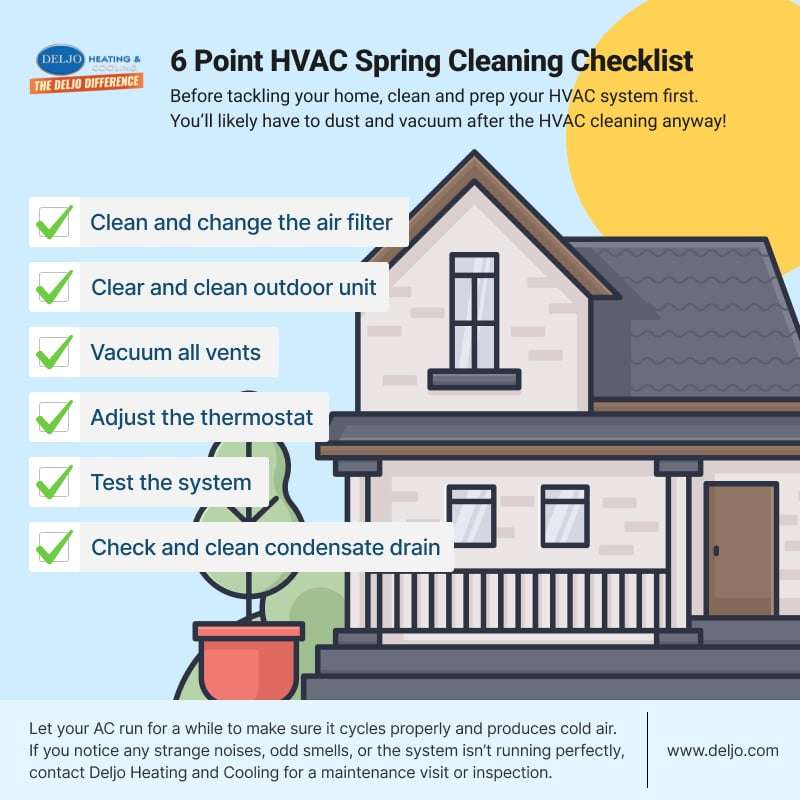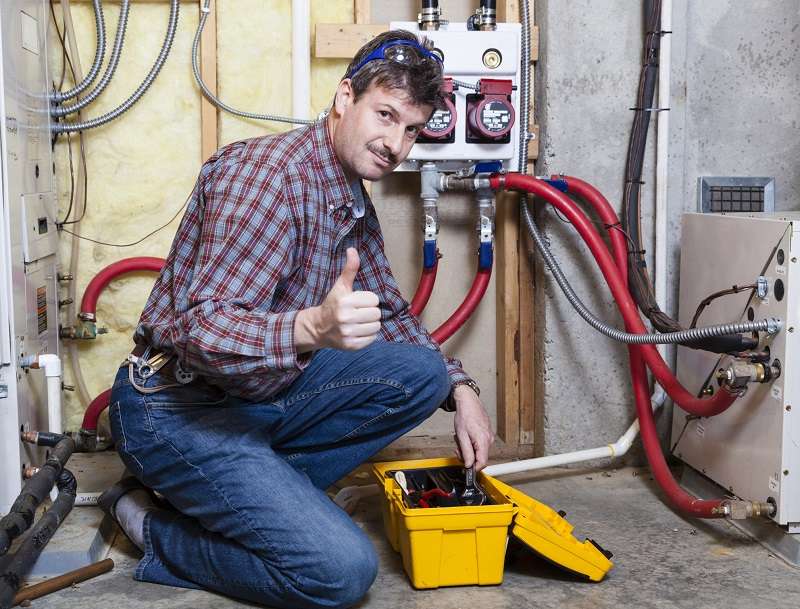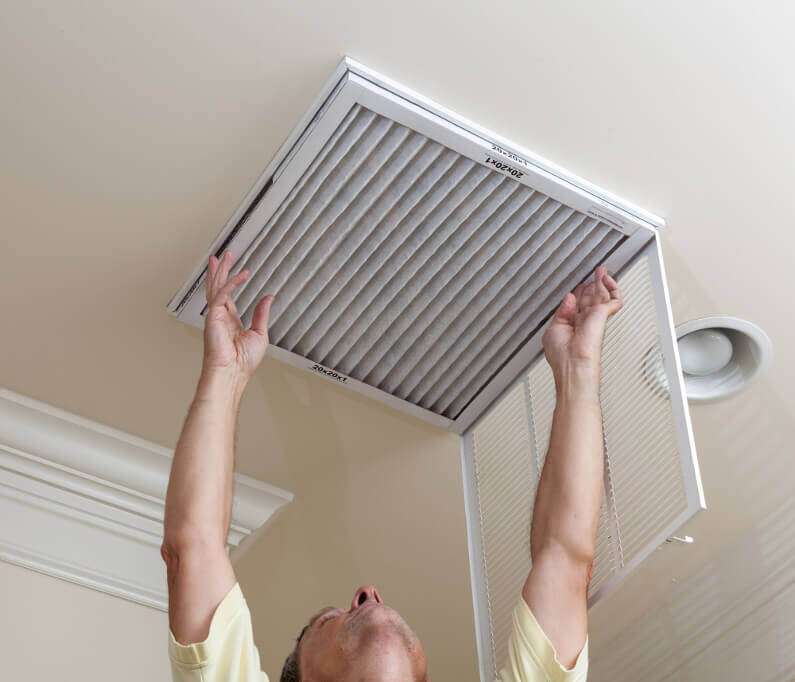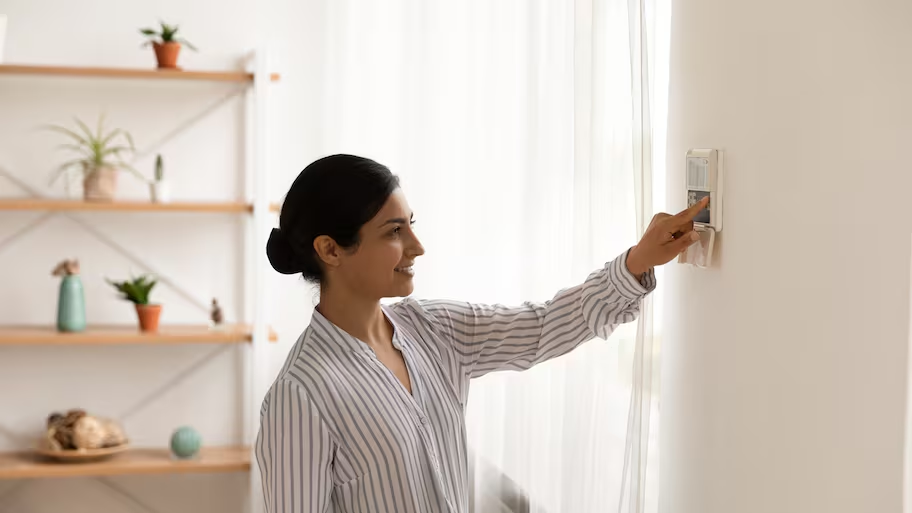Beyond the Thermostat | Heating Maintenance – The clatter of leaves and the crisp morning air can only mean one thing—it’s time to ensure your heating system is ready to tackle the winter. As the backbone of your home’s comfort, the heating system requires careful attention and maintenance. Let’s dive into the essential aspects of heating maintenance that will keep your home cozy and your system running smoothly.
Key Takeaways:
- Regularly check and replace air filters to ensure efficient system operation.
- Schedule annual HVAC inspections to prevent breakdowns.
- Understand your system’s components, from thermostats to ducts, for better troubleshooting.
- Utilize smart thermostats for energy efficiency.
- Know when to call in professionals for heating and air conditioning issues.
The Importance of Air Filters
Regularly Checking and Replacing Air Filters
Air filters are the unsung heroes of your HVAC system, trapping dust, allergens, and particles and keeping them from circulating through your home. But their unseen nature often leads to neglect. A dirty air filter not only degrades air quality but also forces your heating system to work harder, which can lead to increased energy costs and reduced lifespan of the system.
Understanding Your HVAC System
The Role of the Thermostat
Your thermostat is the command center of your heating system, regulating temperature and ensuring comfort. Recent advancements have brought smart thermostats into the market, which learn your habits and adjust heating automatically to save energy while maintaining comfort (One Hour HVAC).
Zoned Heating Systems
For homes with zoned heating systems, maintaining individual thermostats in each zone is crucial. These systems allow for different temperatures in various parts of the house, optimizing comfort and efficiency (One Hour HVAC).
The Heart of the System: The Furnace
At the core of many heating systems is the furnace, where fuel—be it gas, oil, or electricity—is converted into heat. This heat is then distributed throughout your home via ducts. Keeping the furnace in good working order is paramount to ensure efficient operation and prevent potential safety hazards (One Hour HVAC).

Scheduled Maintenance: The Key to Longevity
Annual HVAC Inspections
Just like a car, your HVAC system needs regular checkups to run efficiently. These inspections can catch issues before they turn into costly repairs. Professionals will check combustion systems, ensure vents are clear, and verify that all mechanical components are functioning correctly.
Advanced Components
Heat Exchangers and Pumps
Heat exchangers in furnaces and boilers play a critical role in transferring heat efficiently. Any leaks or cracks can lead to serious issues, including the risk of carbon monoxide poisoning. Similarly, heat pumps, used in geothermal and air source systems, require regular checks to ensure they are transferring heat effectively (One Hour HVAC).
When to Call the Professionals
While basic maintenance like changing air filters can be done by most homeowners, more complex tasks such as checking heat exchangers, recalibrating thermostats, or repairing furnaces should be left to professionals. This not only ensures safety but also maintains the warranty and efficiency of your system.
For more detailed tips and guidelines on maintaining your heating system, visit these comprehensive guides: 7 Important Tips for Home Heating System Maintenance, The Ultimate Guide to Heating Maintenance for Homeowners, and Do-It-Yourself Furnace Maintenance.
By following these guidelines and understanding the components of your heating system, you can ensure that your home remains a warm and welcoming haven throughout the cold months.

Happy handyman showing thumbs up
Enhancing Your Heating System’s Efficiency
Condenser and Evaporator Coils
At the heart of your split HVAC system lie the condenser and evaporator coils, crucial for heating during the winter and cooling in the summer. The evaporator coil absorbs heat from the air inside your home, while the condenser coil expels it outside. Keeping these coils clean is vital; dirt and debris can insulate the coils, reducing their efficiency and increasing energy costs significantly. Regular cleaning and professional inspections ensure that these coils function optimally, prolonging the lifespan of your system and reducing the need for frequent repairs.
Ductwork Considerations
A well-maintained duct system is essential for the efficiency and longevity of your HVAC system. Leaky or poorly insulated ducts can significantly hinder the performance of your heating and air conditioning, leading to uneven heating, higher utility bills, and strained equipment. Regular duct inspections can help identify and seal leaks and clear blockages that impede airflow, ensuring that your home maintains a consistent and comfortable temperature.
Common Home Heating Issues
Recognizing common heating issues can save you time and money by addressing them before they escalate. Some frequent problems include:
- Inadequate Heat: Often caused by blocked vents, dirty filters, or incorrect thermostat settings.
- Strange Noises: Rattling, banging, or whining noises can indicate mechanical problems, airflow reductions, or a clogged burner.
- Frequent Cycling: This can be caused by an oversized system, improper airflow, or a malfunctioning thermostat.
Addressing these issues promptly can prevent costly repairs and ensure your system operates efficiently throughout the colder months.

Frequently Asked Questions
What is the best way to check air filters?
Checking air filters is simple and crucial for maintaining air quality and system efficiency. Filters should be inspected at least every three months and changed if they are visibly dirty. During periods of high usage, more frequent checks are recommended.
How often should I schedule professional HVAC maintenance?
It’s advisable to schedule professional maintenance annually. Ideally, have your heating system checked in early autumn and your cooling system in the spring to prepare for the upcoming season.
Can smart thermostats save money on heating bills?
Yes, smart thermostats can significantly reduce heating costs by optimizing your heating schedule based on your lifestyle, adjusting temperatures when you are away or asleep, and providing you with energy usage reports to help further tailor your settings.
What should I do if my heating system stops working?
First, check the most common issues: ensure the thermostat is set correctly, check that the circuit breakers are on, and inspect the air filters. If these elements are not the cause, it’s time to call a professional, as the issue could be more complex.
By understanding the needs of your heating system and addressing issues promptly, you can ensure a warm and efficient home. For detailed maintenance guides and troubleshooting, consider visiting resources like Our Ultimate Heating Guide.
By equipping yourself with this knowledge, you can maintain a comfortable and warm environment in your home, ensuring that your heating system operates at peak efficiency throughout the cold season.

